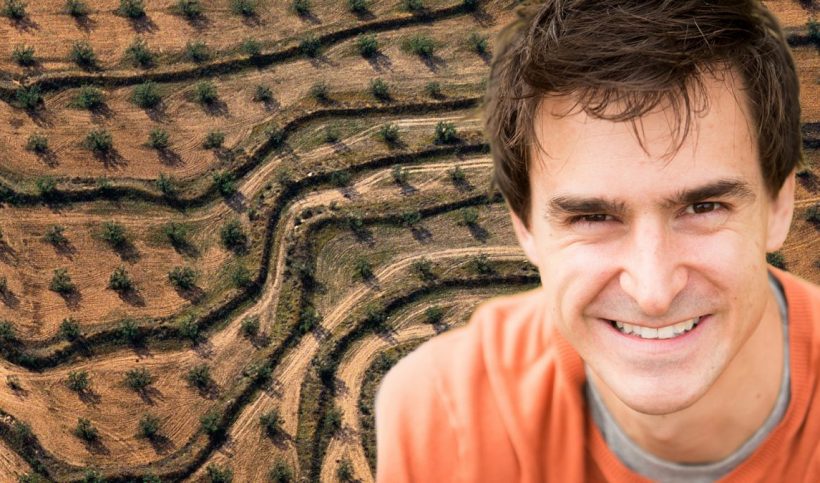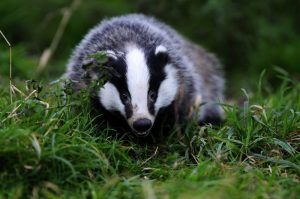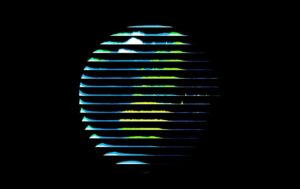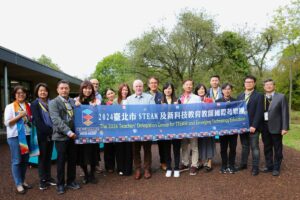Earth to humans – Lewis Dartnell talks Origins: Oxford, Brexit and Alien Invasion
Thursday 24th January 2019

Here at Science Oxford we’ve moved heaven and earth to invite Lewis Dartnell, astrobiologist, writer and Professor of Science Communication at the University of Westminster, to join us in Oxford to talk about his latest book ORIGINS: How the Earth Made Us.
Origins has been hugely well received and is this week’s ‘Book of the Week’ in The Times, and recommended by Peter Frankopan, author of The Silk Road, as – ‘A sweeping, brilliant overview of the history of not only of our species but of the world.. a rare talent in being able to see the big picture – and explaining why it matters.’
Dartnell takes us billions of years into our planet’s past and tells us the ultimate origin story, revealing the Earth’s impact on the shape of human civilizations and helps us to imagine what our future may look like.
Origins tackles the hot topics we’re all talking about, such as: Island Britain – what catastrophe almost half a million years ago made us feel so independent of Europe? What planetary forces defined the routes of the Silk Roads? Why does the pattern of voting in the UK reflect 320 million year-old rocks beneath our feet?
Science Oxford’s Autumn Neagle caught up with Lewis ahead of his talk (St Anthony’s College 26th February) to pick his incredible brain and get his take on everything from Oxford to Brexit and the hunt for aliens…
You studied at Oxford University – how did the Earth shape Oxford as a city of education?
Oxford as a settlement was founded around 900 AD for clear geographical reasons, as it offered a place where farmers could cross the river with their oxen. In those Anglo-Saxon times, fording a river was much easier than constructing a bridge. This geographical location, on the natural barrier of a river, also ensured Oxford’s growing importance as a frontier town between the kingdoms of Mercia and Wessex. But the reason the town became such a prominent seat of learning within England was more down to the socio-political vagaries of history; in 1167 Henry II banned scholars from attending the University in Paris. Throughout ORIGINS, I try to tease apart these different factors through history to see what directing influence the Earth itself – from its local landscapes to global processes like plate tectonics – has had on the human story.
Harry Potter or Lord of the Rings?
LOTR! But I’m generally more of a sci-fi nut than fantasy. I’m a huge fan of authors like Iain M. Banks, Peter Hamilton and Ann Leckie.
If voting behaviour in the US follows the bed of an ancient sea, how on earth did Trump make President?
The selection of the populist Donald Trump as the Republican candidate was due to the increasing sense of disaffection with the ‘elite’ political rulers in much of America. But the reason why, surprisingly, there is a very distinct line of Democrat voting within the sea of Republican red in the south-east of the States is down to the 75 million year old underlying geology. And I’ll explain exactly why that is at our upcoming event!
You’ve talked about how we could rebuild our world after a zombie apocalypse. Any tips for post-Brexit survival :)?
Hah! Yes, The Knowledge was all about a thought experiment on how you could reboot civilization after some sort of hypothetical apocalypse. But I dearly hope we can avoid the fallout from Brexit. Interestingly, though, the map of the Brexit vote also showed a very clear correlation with the geology under our feet. Scotland was actually once part of America, and the suture line where the two continents fused runs very close to the England-Scotland border.
So China has just grown plants in space.. Do you think we’ll eventually cultivate Mars and leave Earth for other planets?
Yeah, the Chinese space probe growing cotton sprouts on the far side of the Moon is a really exciting result. (I just wrote a feature article about it, and couldn’t resist slipping in the awful pun “seeds of Chang’e” …)
Is there life ‘out there’ or are ‘we’ the aliens?
That’s what my field of research in astrobiology is all about! Next year, 2020, will be a very exciting time for space exploration because the European Space Agency will be launching our ExoMars rover to the red planet, specifically to search for signs of bacterial life.
If you could get some AI / robotics ‘work done’, what would super-skill Upgrade would you get and why?
I’d improve my memory, definitely! I am also forgetting stuff, and need to write everything down. I am so envious of friends who just seem to have sticky memories and hold so much in their head!
What about climate change – David Attenborough said at Davos WEF, we are now in the Anthropocene – ‘The Age of Humans’. If the Earth has shaped us, can we use our ‘problem solving skills’ and come together to shape the future of Earth?
That’s exactly what I talk about in ORIGINS. It is by exploring our past – and the planet’s role in shaping us – that we can understand the present and so hope to guide our future. I explain in the book how many of the problems currently facing the world, from acid rain and global warming to over-farming, were like genies locked up millions of years ago by the Earth, and we have inadvertently released them only recently with the clumsy handing of our technologies. But I am optimistic — it is by using our intelligent brains (evolved by the quirky combination of plate tectonics and climate fluctuations in East Africa) that we invented these ever more sophisticated tools, and we also have it in our power to think (and act!) our way through the problems of today.
Join us and Lewis on Tuesday 26th February 7.30PM ages 16+ – book your tickets here. Lewis will be signing copies of Origins after the talk.
“Origins is one of those rare books that dissolves mystery through the steady application of sublime lucidity… Dartnell understands geology, geography, anthropology, physics, chemistry, biology, astronomy and history. That’s quite an achievement, but what makes him special is the way he communicates the interconnectedness of these disciplines in a clear, logical and entertaining way… Superb.”
THE TIMES, Book of the Week
“Dartnell has found the perfect blend of science and history. This is a book that will not only challenge our preconceptions about the past, but should make us think very carefully about humanity’s future”
Simon Griffiths, MAIL ON SUNDAY
“Dartnell is an eloquent, conversational guide to these daunting aeons of time. Never has geological history seemed so current.”
THE GUARDIAN


